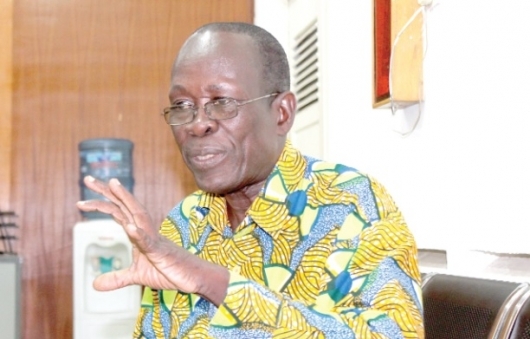
General Secretary of Ghana Federation of Labour Abraham Koomson has said doing business in Ghana has become expensive that Investors don’t want to invest in the Country again.
Speaking on Ahotor 92.3 Fm’s morning show ‘Ade Kyi Mu Nsem‘ with host Citizen Kofi Owusu, Mr Koomson pleaded with Parliamentarians to reject the new 3 bills government wants to amend as it will heap more pressure on the already burdedn business community.
Parliament is expected to vote on the Income Tax (Amendment) Bill, Excise Duty and Excise Tax Stamp (Amendment) Bills as well as the Growth and Sustainability Levy Bill.
Approval of these outstanding revenue mobilisation bills will facilitate the Board Approval for the $3 billion International Monetary Fund (IMF) Programme staff-level agreement.
The passage of all the outstanding revenue Bills which are necessary for effective Budget implementation as well as boosting efforts at increasing Tax-to-GDP from less than 13% to the sub-Saharan average of 18%
The passage of the Bills will enable the government to complete four out of five agreed Prior Actions in the Staff Level Agreement.
Mr Koomson said the passing of these 3 new bills will collapse the few Industries left in Ghana as Investors are already pulling out from the country because of how expensive doing business in Ghana has become.
“Doing business in Ghana has become soo expensive that investors don’t even want to come, is that what they (Parliamentarians) want?” he opined.
Using the approval of the new six ministers which saw some NDC MPs voting for them against the stance of their party, Mr Koomson pleaded with the NDC MPs to put everything aside and vote against the 3 new bills.
“If the NDC MPs don’t act and act well, whatever will happen will be on their heads”
“We have confidence in the NDC MPs so they should burry all differences within them this time and vote against the 3 new bills” Mr Koomson said.
Already, the government has completed tariff adjustment by the Public Utilities Regulatory Commission (PURC), Publication of the Auditor-General’s Report on COVID-19 spending, and Onboarding of Ghana Education Trust Fund (GETFund), District Assemblies Common Fund (DACF) and Road Fund on Ghana integrated financial management information system (GIFMIS).
The passage of all the outstanding revenue Bills which are necessary for effective Budget Implementation as well as boosting our efforts at increasing our Tax-to-GDP from less than 13% to the sub-Saharan average of 18.
The international and domestic bond markets are shut for the financing of government programmes, forcing the government to rely on Treasury Bills and concessional loans as the primary sources of financing for the 2023 fiscal year.
Story by: Emmanuel Romeo Tetteh (#RomeoWrites) / Ahotoronline.com




